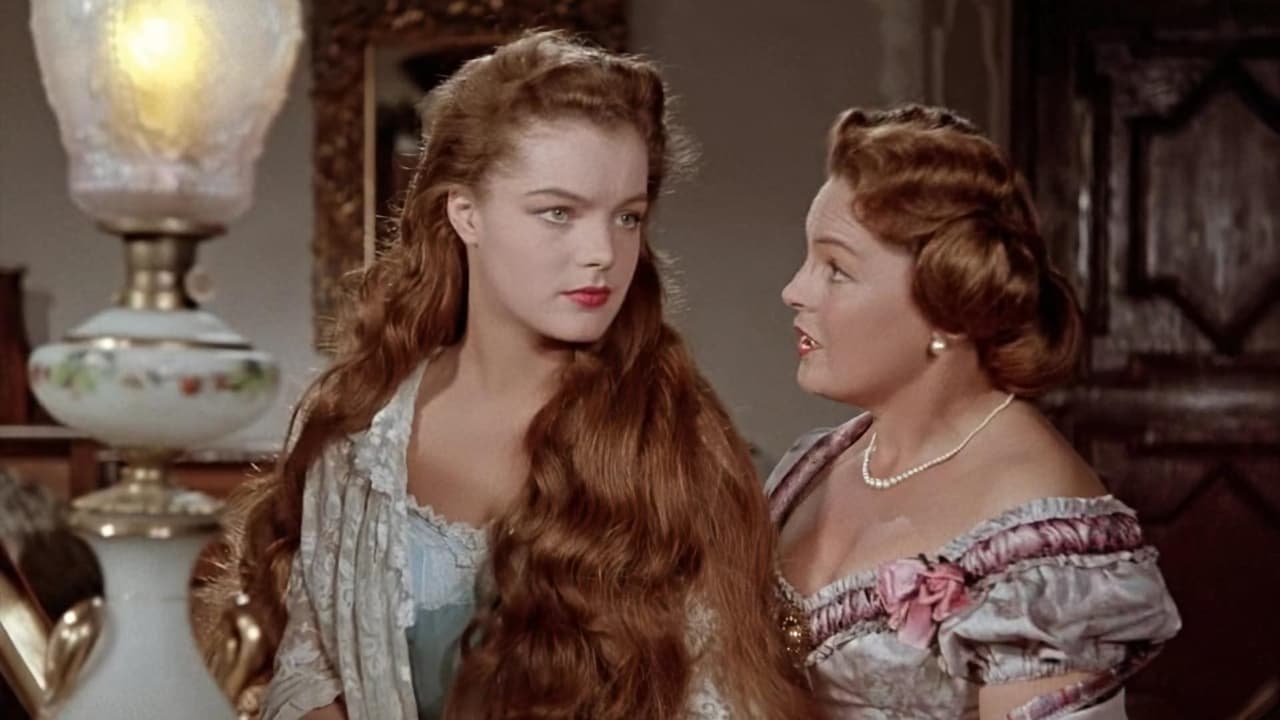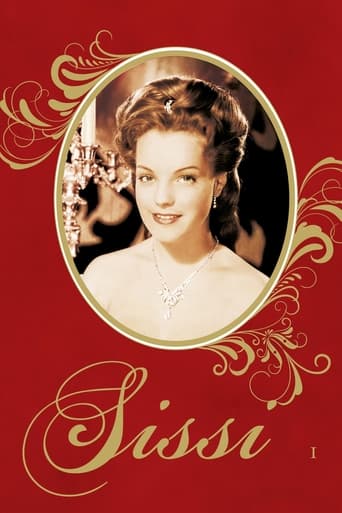

Purely Joyful Movie!
... View MoreThe tone of this movie is interesting -- the stakes are both dramatic and high, but it's balanced with a lot of fun, tongue and cheek dialogue.
... View MoreA movie that not only functions as a solid scarefest but a razor-sharp satire.
... View MoreBy the time the dramatic fireworks start popping off, each one feels earned.
... View MoreIn one of those fictional Mitteleuropean kingdoms that Victorian writers were so fond of -- Graustark, Ruritania, Scythia-Pannonia-Transbalkania, but here called Austria-Hungary -- the Emperor's mother arranges for her son to marry her sister's eldest daughter. When he meets her second daughter wandering in the woods, however, they fall in love.The charming anti-Cinderella tale of Sissi based on history, sort of, but it is brought to the screen in its fairy-tale glory with shots of Schonbrunn Castle, Bad Ischl, lavish sets and costumes and 15-year-old Romy Schneider. Its nostalgia for the dead glories of a lavish court life, stuffed-shirt bureaucrats -- Josef Meinrad has a very funny turn as the incompetent major in charge of security -- is certainly fun to look at, so long as we remember that it's just as unreal as any Disney feature cartoon, even if there are no singing mice. If only the characters in this one didn't look so real.....
... View MoreWritten and directed by Ernst Marischka, 1950's Austrian Sissi trilogy is charming fairytale about 19th century Bavarian princess Elisabeth or Sissi (Romy Schneider), who became wife of Empress Franz Joseph I (Karlheinz Böhm). Sensuous colours make dresses, sets and landscapes look gorgeous, and if what-really-happened-realism is replaced with what-should-have-been-fairytale, the story is enjoyable... just like fairytale. The films made Schneider a star but type-casted her, too. (Side-note: Sissi's mother was played by her real-life mother, Magda Schneider, who had been part of Hitler's social circle, and Böhm's career was later destroyed by 1960 British horror flick Peeping Tom.) Denying of crap? Great, I prefer roses!
... View MoreSissi is sometimes thought to be a rather silly name but that'sen quite besides the point-en jar? We have to bear in mind-en that this was the 19th centurion dafter they didn't quite think these things out. People then were too busy trying to invent electricity rather than thinking about decent names to call their children. And what about Franz? "Sissi and Franz" sounds a bit like "Tom and Jerry", except that they love each other and drink a lot of alcohol. In fact, I know some people who have heard that Sissi and Franz used to go for their holiday-sen in Ibiza and party hard over there. They used to go crazy. Luckily in the movie they cut out all the "inedaquate" parts and instead installed bits of schmooze over-romanticized mushy gaily plots such as "Oh dear, Herr Franz, please pick up a flower for me and I will be yours forever! Herr Franz, stop playing with Nintendo!". That is why I gave it a rather low vote. Siis was very inspiring - we will go hunting very soon, but we are hippies so we would rather kiss the deer instead of shooting it jar? - the grass was too green. For the next time, let's get back from this movie meant a lot to me. it left a permanent mark in my heart. it opened up a rivulet of fresh steaming passion that has been like a guiding light throughout my humble life. this movie set out my role models, revealing their most intimate thoughts and behaviors jar? when i met my wife, the love of my life, the light of my eyes, i was a Franz to my Sissi. And we went to Ibiza, and I picked up the flower, and we lived happily forever in the green hills of Vienna. i recommend every Bozen to watch this film.
... View More"Sissi" is the first part of a trilogy about the Austrian princess/empress Elisabeth in Bavaria, aka Sissi (Romy Schneider). The teenage princess lives happily in Bavaria with her parents, Duke Max (Gustav Knuth) and Duchess Ludovika (Magda Schneider, Romy's real life mother), and siblings. When Ludovika is invited by her sister, Archduchess Sophie (Vilma Degischer), to take Helene, Sissi's older sister, to the Austrian court in Ischl, in order to arrange a royal engagement for Helene and the young emperor Franz Joseph (Karlheinz Böhm), Sissi goes along. However, nobody could imagine that Franz would fall in love with the spontaneous, childish Sissi, instead of the sophisticated Helene."Sissi" is nothing more than a naïve, romantic matinée – but a very well done romantic matinée! Romy Schneider shines as the young princess, she's the heart of the movie. It's impossible not to fall in love with her gorgeous smile and sweet manners.Released in the same year as another unforgettable romance ("Picnic", with William Holden, Kim Novak and Rosalind Russell), "Sissi" may not be called a masterpiece. However, I cannot give anything less than a "10" to a movie that makes you feel good and smile even during the hardest times.
... View More